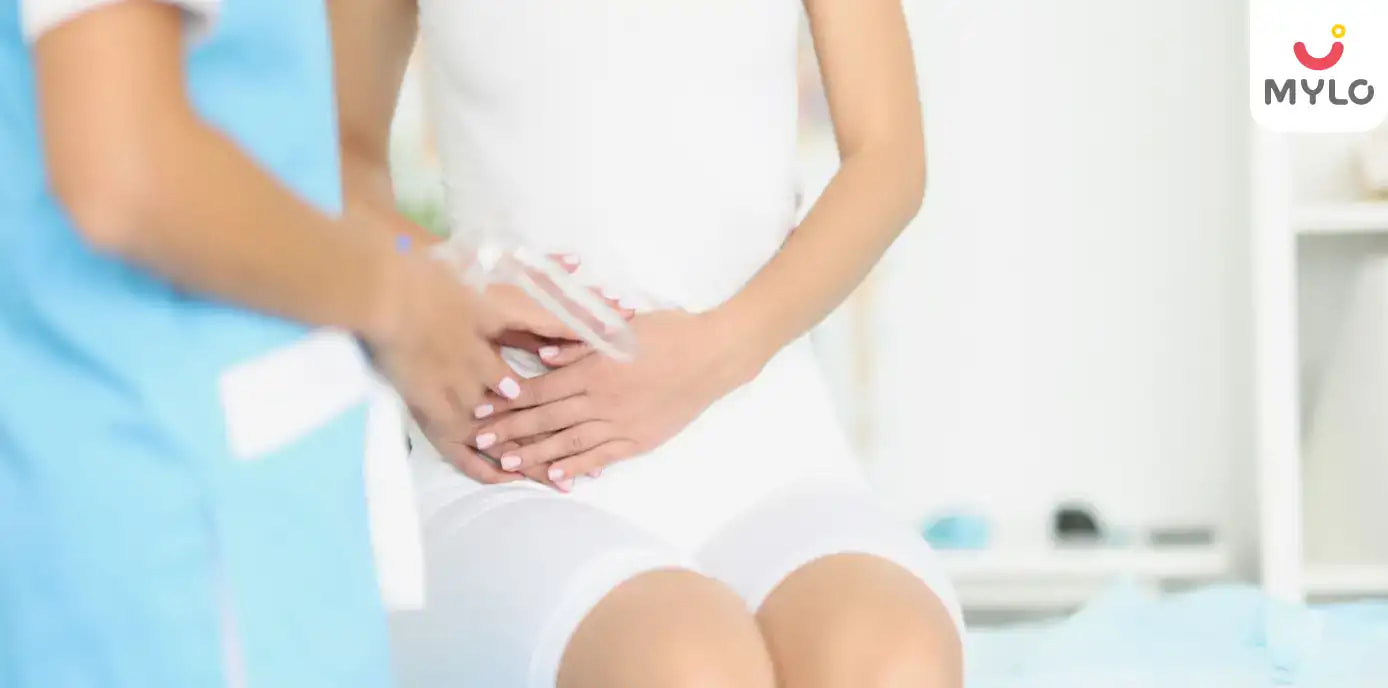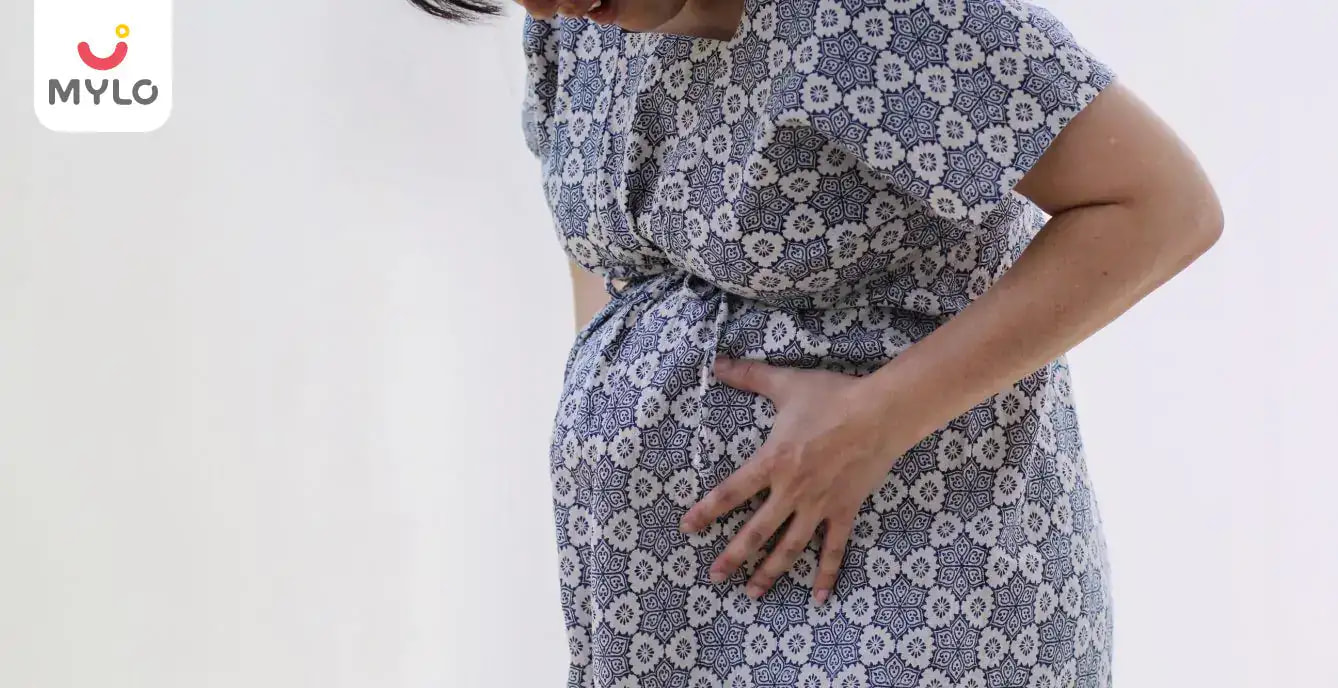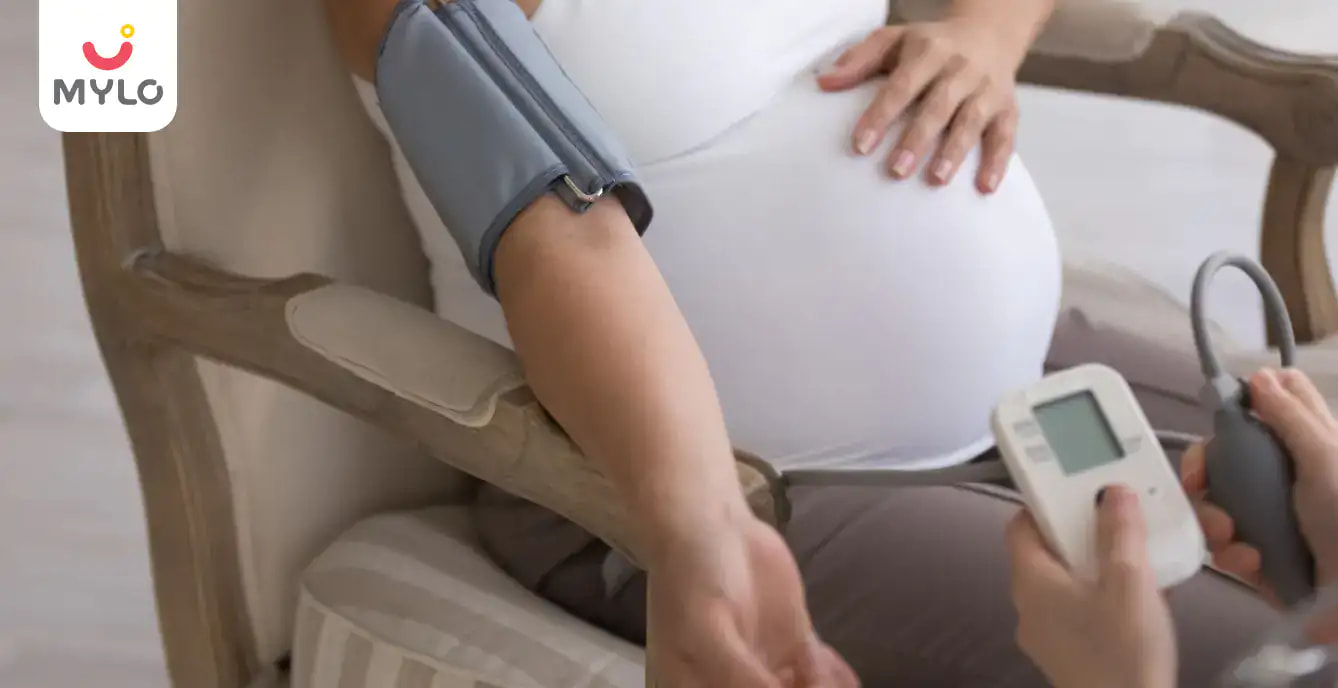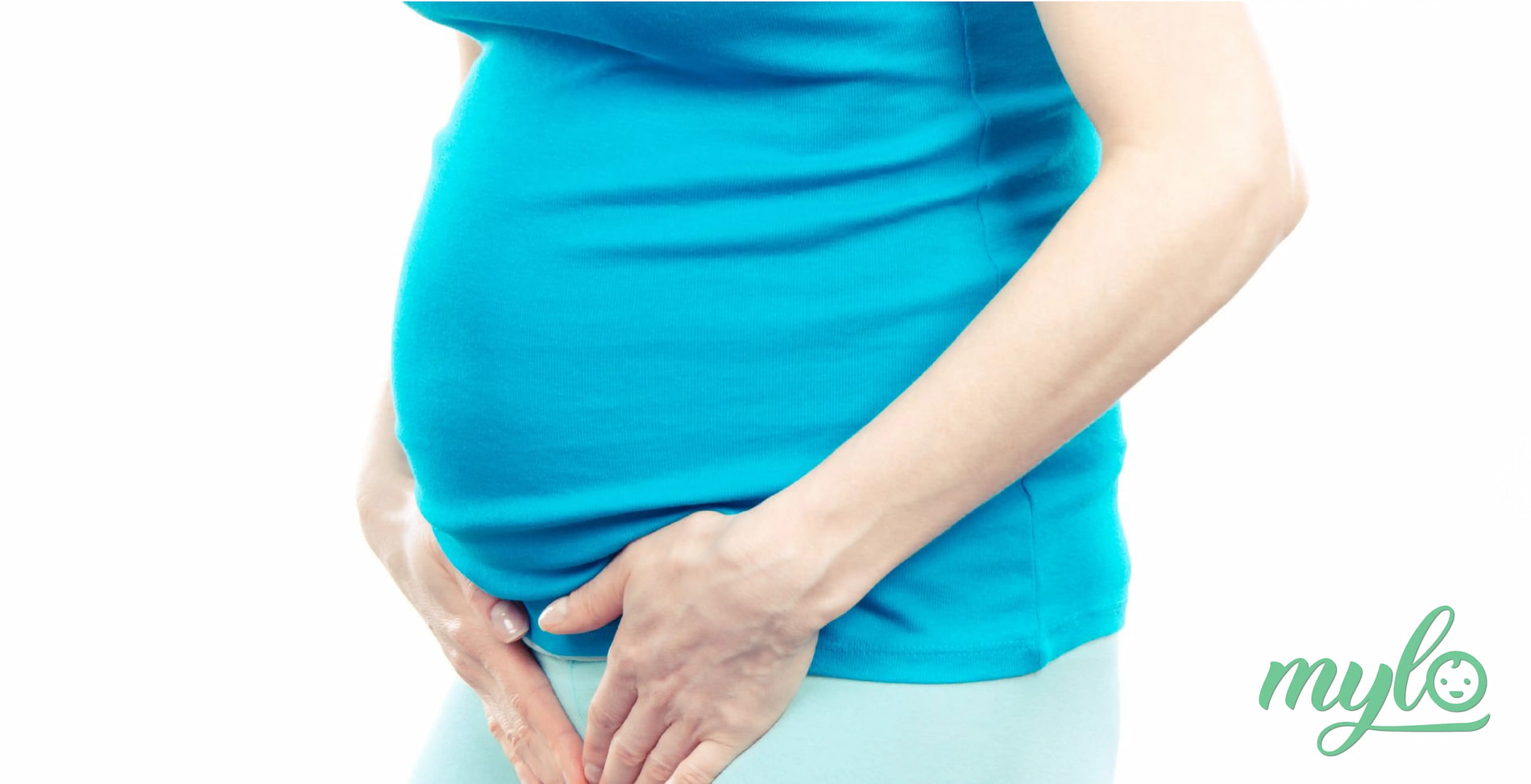Home

Are you Concerned about rectal bleeding in your pregnancy? Here're some relief tips for you!
In this Article

Pregnancy
Are you Concerned about rectal bleeding in your pregnancy? Here're some relief tips for you!
Updated on 6 March 2023
Are you stressed about seeing blood on toilet paper during pregnancy? It is ineed a matter of concern as it could be a sign of rectal bleeding, which is common when expecting a child. The article will discuss all the essential aspects of rectal bleeding, like causes, symptoms, and diagnosis of rectal bleeding. You can also learn other crucial factors like treatment options, prevention, and when to consult a doctor.
What is Rectal bleeding during pregnancy?
Rectal bleeding during pregnancy refers to the presence of blood in the stool or on the toilet paper after wiping during pregnancy. It can be a common occurrence during pregnancy, with several causes.
Causes of rectal bleeding
One of the most common causes of rectal bleeding during pregnancy is hemorrhoids. Constipation during pregnancy can also contribute to hemorrhoids and rectal bleeding.
Another cause of rectal bleeding during pregnancy is anal fissures, which are small tears in the lining of the anus. These can be caused by passing hard stools or straining during bowel movements.
Signs of rectal bleeding
The symptoms of rectal bleeding may include:
-
Blood in the stool
-
Dark or black stool
-
Abdominal pain or cramping
-
Diarrhea or constipation
-
Nausea or vomiting
Diagnosis of rectal bleeding
The diagnosis of rectal bleeding typically involves a medical history and physical examination, followed by additional tests to determine the underlying cause. Here are some standard diagnostic tests that may be used:
- Physical examination: Your healthcare provider may perform a physical exam to check for hemorrhoids or other signs of rectal bleeding.
- Blood tests may be ordered to check for anemia or other underlying health conditions.
- Stool sample analysis: A stool sample may be analyzed for signs of infection or other underlying conditions.
- Colonoscopy: A colonoscopy is a procedure in which a flexible tube with a camera is inserted into the rectum to examine the colon and rectum for abnormalities.
- CT scan or MRI: These imaging tests may be used to check for structural abnormalities or other underlying conditions.
When is rectal bleeding common during pregnancy?
Rectal bleeding can occur at any time during pregnancy, but it's most commonly reported during the second and third trimesters. This is partly due to the increased pressure on the rectum and anus from the growing uterus and hormonal changes that can contribute to constipation and hemorrhoids.
Additionally, rectal bleeding may be more common in pregnant women with a history of constipation, hemorrhoids, anal fissures, or experiencing increased stress or anxiety during pregnancy.
When to consult a doctor?
It's essential to consult a doctor if you experience rectal bleeding during pregnancy, as it can be a sign of a more severe condition. Here are some specific situations when you should seek medical attention:
If you experience persistent or heavy rectal bleeding: If you notice blood in your stool or on the toilet paper after wiping and it persists for more than a few days or is heavy, you should contact your healthcare provider.
If you experience abdominal pain or cramping: If you experience abdominal pain or cramping along with rectal bleeding, it may be a sign of a more severe condition, and you should seek medical attention.
If you have a history of colon cancer or inflammatory bowel disease: If you have a personal or family history of colon cancer or inflammatory bowel disease, you may be at a higher risk for rectal bleeding and should talk to your healthcare provider.
If you experience other symptoms: If you experience other symptoms such as fever, nausea, vomiting, or diarrhea along with rectal bleeding, you should contact your healthcare provider.
Treatment of rectal bleeding
The treatment of rectal bleeding during pregnancy will depend on the underlying cause. Here are some common treatments:
-
Hemorrhoid treatment: If the rectal bleeding is due to hemorrhoids, your healthcare provider may recommend over-the-counter medicines such as sitz baths, ice packs, or creams.
-
Stool softeners and fiber supplements: If constipation contributes to rectal bleeding, your healthcare provider may recommend stool softeners or fiber supplements to help promote regular bowel movements and prevent straining during bowel movements.
-
Medications: Sometimes, your healthcare provider may prescribe antibiotics or anti-inflammatory drugs to treat infections or inflammation contributing to rectal bleeding.
Precautions to avoid rectal bleeding
Here are some precautions you can take to help prevent rectal bleeding during pregnancy:
-
Stay hydrated: Drinking plenty of water and fluids can help keep your stool soft and prevent constipation, which can contribute to rectal bleeding.
-
Eat a healthy diet: A fiber-rich diet can also help prevent constipation and promote regular bowel movements. Good sources of fiber include fruits, vegetables, whole grains, and legumes.
-
Exercise regularly: Engaging in regular activity, such as walking or yoga, can also help prevent constipation and promote healthy bowel movements.
-
Avoid straining during bowel movements: Straining during bowel movements can contribute to hemorrhoids and anal fissures, leading to rectal bleeding. To prevent straining, use a footstool to elevate your feet while on the toilet, and take your time during bowel movements.
Talk to your healthcare provider: If you have a history of hemorrhoids, anal fissures, or other conditions that can contribute to rectal bleeding, talk to your healthcare provider about steps you can take to prevent or manage the disease during pregnancy.
Taking these precautions can help reduce your risk of developing rectal bleeding during pregnancy. However, it's essential to talk to your healthcare provider if you experience rectal bleeding symptoms, as prompt medical attention can help ensure the best possible outcome for you and your baby.



Written by
Ravish Goyal
Official account of Mylo Editor
Read MoreGet baby's diet chart, and growth tips

Related Articles
Related Questions
Hello frnds..still no pain...doctor said head fix nhi hua hai..bt vagina me pain hai aur back pain bhi... anyone having same issues??

Kon kon c chije aisi hai jo pregnancy mei gas acidity jalan karti hain... Koi btayega plz bcz mujhe aksar khane ke baad hi samagh aata hai ki is chij se gas acidity jalan ho gyi hai. Please share your knowledge

I am 13 week pregnancy. Anyone having Storione-xt tablet. It better to have morning or night ???

Hlo to be moms....i hv a query...in my 9.5 wk i feel body joint pain like in ankle, knee, wrist, shoulder, toes....pain intensity is high...i cnt sleep....what should i do pls help....cn i cosult my doc.

Influenza and boostrix injection kisiko laga hai kya 8 month pregnancy me and q lagta hai ye plz reply me

Related Topics
RECENTLY PUBLISHED ARTICLES
our most recent articles

Illnesses & Infections
Diagnosis and Treatment of Vaginal infections during pregnancy to prevent any complications

Festivals & Celebrations
8 Ways to Empower Women with Digitalisation this International Women's Day
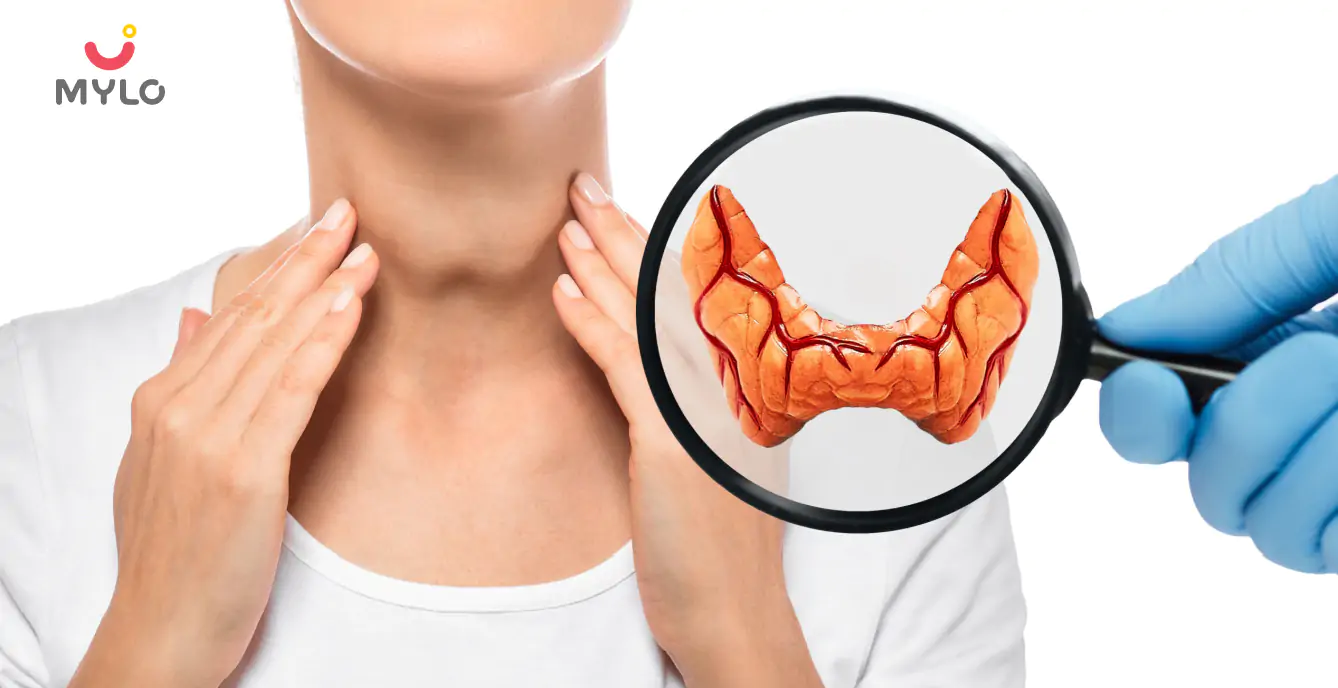
Diet & Nutrition
Navigating Hypothyroidism and Pregnancy: Tips for Expecting Moms

Diet & Nutrition
Top 10 Post-Holi Detox Tips to Cleanse Your Body

Festivals & Celebrations
Holi-Proof Your Skin and Hair with These 10 Natural Tips
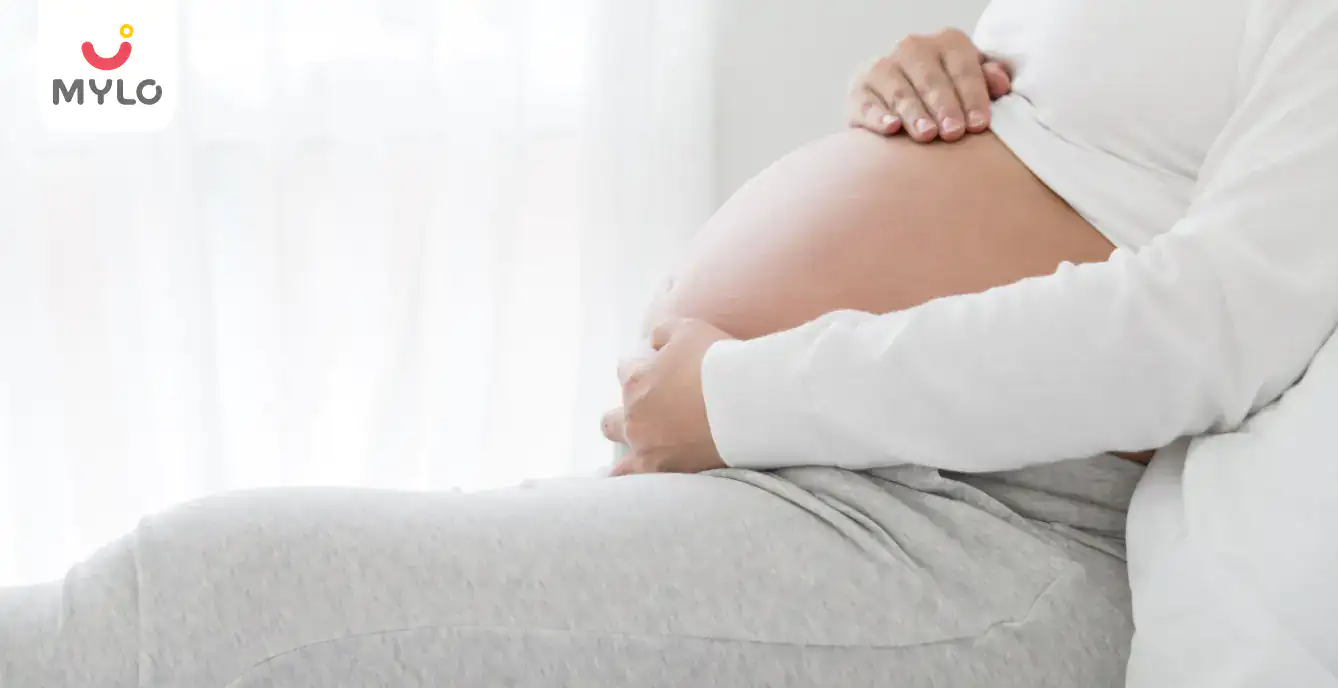
Placenta Abruption: Causes, Symptoms and Treatment
- 8 Holi Dishes That Will Add Flavour to Your Holi Party
- Your Guide to Vitamin C: Benefits, Daily Requirements & Sources
- Foods to Eat & Avoid During the 8th Month of Pregnancy
- Safely Trimming Your Baby's Nails: A Step-by-Step Guide
- Leg Cramps During Pregnancy: Causes, Treatment And Home Remedies
- When is the best time to give your child cow's milk and how to make the switch easier?
- How to Handle Giving Birth to a Baby Alone?
- Can You Get Pregnant During Your Period?
- When to Make an Emergency Doctor Visit During Pregnancy?
- How to Help Your Toddler Overcome their Shyness?
- Piercing Your Baby's Ears: Risks & Precautions
- Which Food items to Include & Avoid During Third Trimester of Pregnancy for optimum nutrition?
- Breech Baby: Causes, Risks, Flipping & Delivery
- Everything You Need to Know About the Different Stages of Labour


AWARDS AND RECOGNITION

Mylo wins Forbes D2C Disruptor award

Mylo wins The Economic Times Promising Brands 2022
AS SEEN IN

- Mylo Care: Effective and science-backed personal care and wellness solutions for a joyful you.
- Mylo Baby: Science-backed, gentle and effective personal care & hygiene range for your little one.
- Mylo Community: Trusted and empathetic community of 10mn+ parents and experts.
Product Categories
baby carrier | baby soap | baby wipes | stretch marks cream | baby cream | baby shampoo | baby massage oil | baby hair oil | stretch marks oil | baby body wash | baby powder | baby lotion | diaper rash cream | newborn diapers | teether | baby kajal | baby diapers | cloth diapers |



